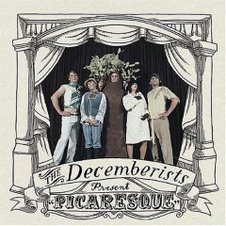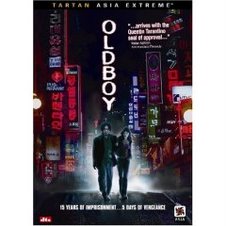My first contact with internet discourse about Mormon stuff was on soc.religion.mormon, a Usenet group that is moderated for topicality and civility. SRM was my earliest model for what conversation between believers and non-believers should look like. Two years as a moderator showed me how this model behavior was cultivated: through the miracle of software and a dedicated moderation team, discourteous posts never get through.
Prevention is built into the charter. One hot button is defined as discourteous: Is the church a cult? Another is defined as off-topic: Are Mormons Christians? Discussion of the temple ceremony is prohibited.
This is not to say that everybody who posts on SRM is a believer, or even supportive or positive about the faith. Posters have come and gone who are adamantly opposed to the teachings and practices of the Church of Jesus Christ of Latter-day Saints, but they were unfailingly civil in how they presented their disagreements. That's because if they weren't, their posts didn't see the light of day.
Over at LDS Liberation Front, I got my underwear in a bunch about the reasonableness of divorcing an otherwise acceptable spouse because said spouse doesn't believe any more. The discussion made me think about discourse between Mormons and Former Mormons.
The stereotypical conversation is a shouting match between the prissy, offended LDS who thinks the ex-mo "can't let it alone" and should just go away quietly, and the angry ex-mo who thinks all those &%*$(#@! Mormons are *$@!*%+ idiots. But if you're outside the corridor, isn't that kind of confrontation rare? Isn't it pretty rare on the internet, too? I've been impressed, overall, by how pleasant most of the folks on the 'nacle have been to me, my Transitional Mormon status notwithstanding. Even the occasional uber-Mormons have been very polite.
I contrast this with the way each group talks about the other in their "safe spaces." Some places on the DAMU* would be downright horrifying to a believer to read. I have read some assumptions about ex-Mormons in believing spaces that are not exactly charitable, either.
Are we being fake in our dialogues with the Others? Are we putting on the show that's expected in our "safe spaces"?
Do you restrict your reading to believing blogs? Do you read boards like FAIR? Do you ever peek in on RFM? How does the discussion of the Others among themselves affect your perception of them?
I sense the need for a poll.
---------------
*DisAffected Mormon Underground. It's a great acronym; admit it.
Wednesday, May 03, 2006
Subscribe to:
Post Comments (Atom)




6 comments:
Ann said, "Are we being fake in our dialogues with the Others? Are we putting on the show that's expected in our "safe spaces"?"
I a big fan of honesty when we speak with others about our true feelings, but I am also a big fan of tact. And although I think it is entirely appropriate to feel all sorts of emotions including anger, disgust, frustration, etc. Often it is better not to speak to the people we are upset with while we are upset if we cannot avoid saying things that are simply going to inflame the situation. However, sometimes we need to vent and we need to talk with people who understand us and the frustration we feel.
So, although one is honest with both audiences, I think it is ok that the dialogue is very different among people who believe as you do compared with the dialogue with people who do not. That is if the conversations are private.
However, believing and unbelieving message boards are not private. So posters need to be very careful to be respectful. Calling people idiots or sinners is not appropriate on any board, IMHO. However, we as readers need to understand that the language among people who share beliefs might occasionally be harsh towards the beliefs and behaviors of the other group.
I also think that people should not talk about specific others behind their backs.
Ned,
I think it's largely due to the absence or presence of the other party.
I find that I tend to be much more intolerant, unforgiving, and harsh-talking about THEORETICAL people.
Once I am confronted by the real thing, I find that my position typically softens. I just have a general weakness for people and tend to get all mushy.
But you wouldn't think it to hear me talk "on principle."
Seth R.
By the same token, are we being fake in our dialogues at the dinner table? Are we putting on the show that's expected in our religious gatherings?
Though we use the same dictionary, we are using a different language when we express ourselves as opposed to communicating with others. Fast and Testimony meeting, for example, tend to be about expressing ourselves. We will behave entirely differently when we chat with a friend, teach a class, coordinate with our colleagues, or talk to our children.
These discrepancies are a matter of the various function's of language, not hypocrisy.
My apologies for the sloppy grammar.
It's gotta be "tends" and "functions."
Quick answering your questions, Ann.
I don't restrict my reading at all. I get grossed out once in awhile, but that's by gross subjects like bodily functions.
I don't check into FAIR much, but no reason. It just didn't "catch"
me.
Where is this site you speak of?
I'm thinking, let's think acronyms: Disaffected (Amorous or some other word that begins with A)--how about ANTI? -Mormons U. DAMU.
I'm usually the only uncivil one, if there is an uncivil one. I'm getting better.
You know, there is validity to that "can't leave it alone" thing. Some people just don't give a crap about the church, but that's usually people like my neighbors who are good neighbors, clean and quiet, who drink and smoke and love the Elks.
Others, like my baby sister, who is a total pain, just cannot leave it alone. Talk about bellyaching.
I honestly think if she got called to be the prophet, she'd change her tune overnight. I think she just wants attention and popularity and for awhile, she got lots of that touring with the Godmakers.
Post a Comment